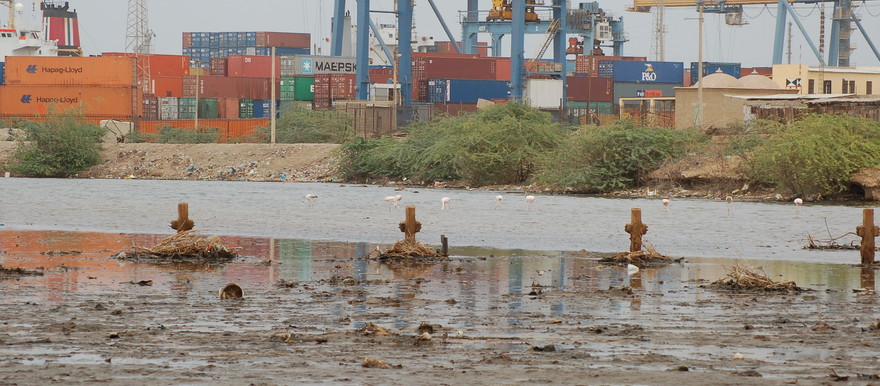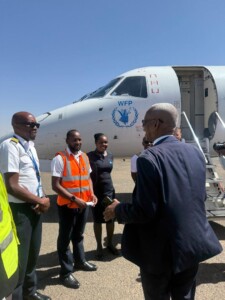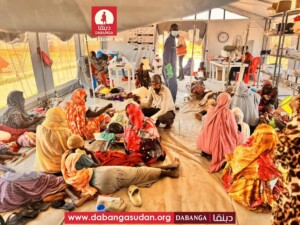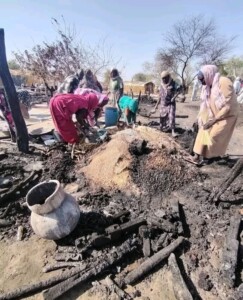Thousands of homes destroyed by Port Sudan floods

Floods in Port Sudan
Voluntary organisations in Port Sudan recorded the collapse of 1,471 homes as a result of the torrential rains that swept the Red Sea state capital on Tuesday. About 27,000 families have been affected. Journalist and nafeer* (community support) activist Azza Era, reported the collapse of 497 houses in the southern part of the city, 574 houses in the east, and 400 in the central section of Port Sudan.
She added that the numbers do not include the areas that are still flooded.
Journalist Mortada Karrar told Radio Dabanga that the DAL Group, the largest private company in the country, and the Port Sudan Youth Initiative provided initial assistance to the affected.
He warned of potential environmental disasters due to the accumulation of rainwater and its leakage into underground wells, noting that most of the neighbourhoods of the large harbour city depend on drinking water from these wells.
The number of victims of the floods that swept Port Sudan in Red Sea state on Tuesday rose to at least two deaths and significant property losses, in addition to serious damage to roads and bridges.
Journalist Mortada Karrar told Radio Dabanga that the operations to count the losses are still ongoing.
He said that the collapse of the main ring road caused a traffic jam inside the city, as the authorities instructed lorries and bus drivers to use the internal roads until temporary repairs are made to the collapsed road.
Schools are to reopen again on Monday.
Torrential rains that swept Port Sudan on Tuesday, caused the death of a child and led to great damage to homes and the death of livestock.
The authorities announced the suspension of studies in all schools in Port Sudan on Wednesday and Thursday.
Activist Naseeba El Meleik told Radio Dabanga that the entire city witnessed extremely heavy rainfall on Tuesday for six continuous hours.
A child was electrocuted in the city centre when electricity cables were cut, she said. People tried to save the child while he was exposed to electric current, to no avail.
Large floods washed away a number of roads in the city, in addition to a number of livestock pens, which led to the death of large numbers of animals.
There are no statistics on losses from the official authorities so far.
*Setting up a nafeer initiative is deeply rooted in Sudanese culture. In case of a natural or man-made disaster, members of the community spontaneously form aid groups to help out the victims, encouraging each other and sharing meals in between.











 and then
and then